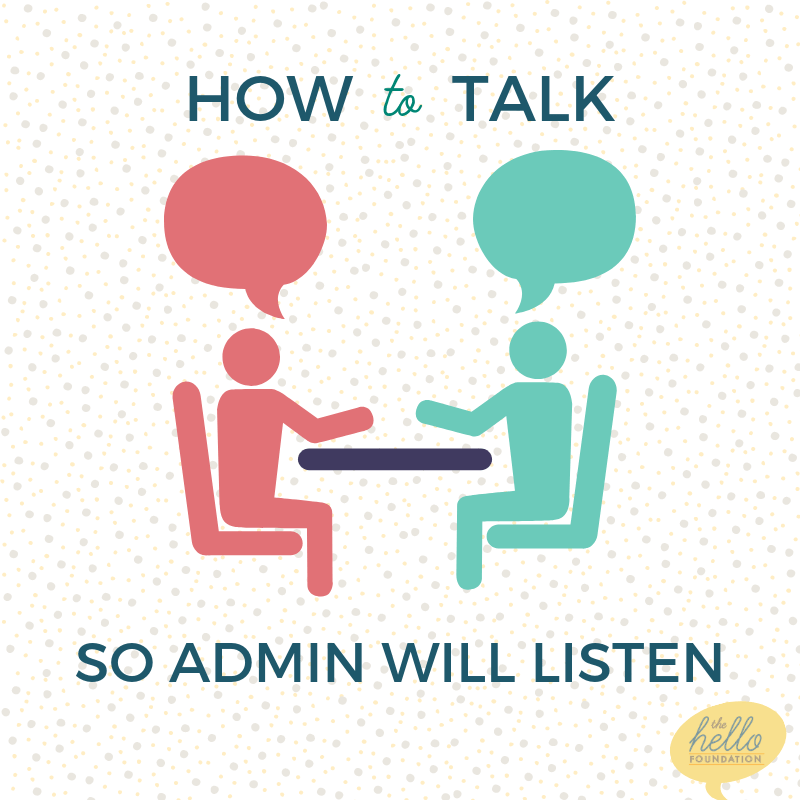Any SLP in the schools knows that they wear many hats, only one of which is the therapist hat. Depending on the building, other hats might include scheduling secretary, preventionist, collaborator, mediator, compliance specialist, and most certainly, advocate. In their advocate hat, SLPs advocate for and to students, families, and teachers, but they might find themselves most unprepared to talk to administrators. When SLPs are talking to administrators, though, they are more likely to be advocating for themselves, and that can be quite a different story!
As helpers in a nurturing, caregiving profession, some find it tempting to “suck it up,” “not cause problems,” or “keep quiet” because there are always other issues. The budget may be tight, recruiting new staff may be tough, and administrators’ jobs may be complicated. But let’s be clear: not advocating for yourself, your needs, and your position leads to burnout. And as much as we might feel like we’re helping that one student by taking the work home or staying a little later if we burn out and leave our field early in our career, there may be 20 years of students that will not benefit from our training and expertise.
3 Tips For Talking So Administrators Will Listen
Advocating for yourself and your position can be intimidating, but don’t worry! Here are 3 tips on talking so administrators will listen:
1. Be aware of trade-offs
You probably learned a while ago that you can’t do everything. If you take on one thing, there is another that is not getting done. If your current duties are too much for the time allotted, there are likely things that are not getting done or not getting done well. Even if you decide to “do it all,” it probably means things in your “non-work life” are suffering. (If you’re asking yourself what “non-work life” is, then that’s what I’m talking about.) Share these things with your administrator in basic, concrete terms: “Because I’m doing x, I’m not doing y,” or “If I take on that responsibility, I will need to let this other responsibility go.” This helps your administrator see your time and workload and helps you work together for positive change.
2. Be solution-based
It’s all well and good to know that things are not right, but much harder to name a solution. Now, imagine you are an administrator without intimate day-to-day experience in the position or in-depth knowledge of the issues. When preparing to talk to your administrator, ask yourself, what would solve the problem? Could you handle it without the assessments? Or maybe if you didn’t have to think about the kindergarten classrooms? Or what if you just managed what you have now, and someone else took new referrals? Share your problem and then immediately share your solution with words like, “I propose that . . . ” or “Here are my ideas for solutions to this issue.”
3. Go in with a plan
Whether you are addressing your administrator in person or via email, make a statement about how you intend to proceed if nothing else changes. It might feel presumptuous to tell your supervisor the plan, but something will happen whether or not you receive direction. Stating what that will be, preferably in writing, protects you in the future when questions arise.
Administrators can only fix the issues they know about. Advocate for yourself by being realistic about trade-offs focused on solutions, and intentional about planning. You’ll end up with a job you can love again.






